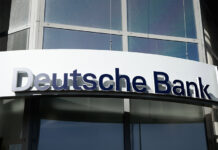The global credit crunch is already having an impact on deals, with one stark example found in the sale of Ranbaxy shares to Japanese drug firm Daiichi Sankyo.
In October, the Securities and Exchange Board of India (SEBI) rejected a bid by the promoters of Indian drug company Ranbaxy to complete a transfer of shares via block deals through the stock exchanges. The promoters now face the possibility of having to pay more than US$200 million in capital gains tax to the Indian government.
The Daiichi Sankyo and Ranbaxy deal, in June, sought to transfer the Singh family’s 34.82% stake in Ranbaxy. When the deal was finalized, Daiichi paid Rs737 per share to Ranbaxy promoters; but in the recent stock market falls, the price of Ranbaxy shares dropped 64% to Rs266. Ranbaxy had asked SEBI for a relaxation of the norms related to block deals, so that it could execute the deal at the earlier agreed Rs737 share price.
You must be a
subscribersubscribersubscribersubscriber
to read this content, please
subscribesubscribesubscribesubscribe
today.
For group subscribers, please click here to access.
Interested in group subscription? Please contact us.



























